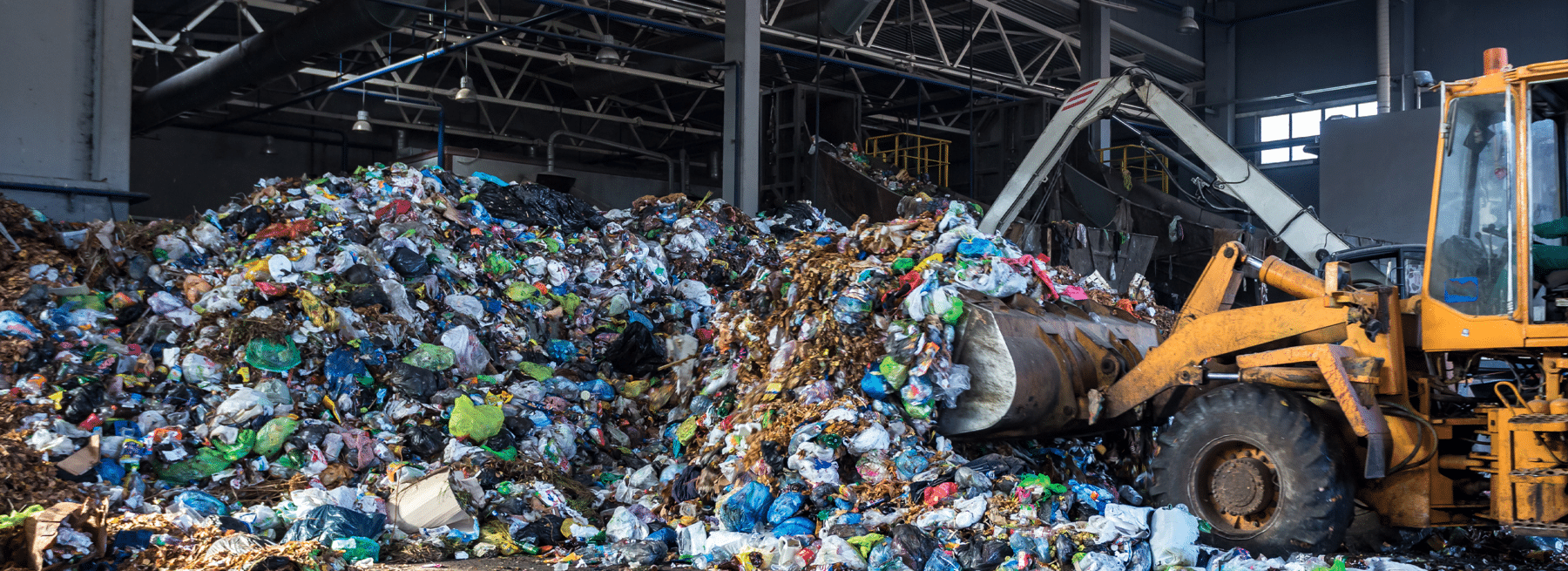The world of waste and recycling is not just about collecting and getting rid of our trash. It’s also about keeping our environment clean and safe. Therefore, the waste and recycling industries play an essential role in managing the world’s ever-increasing waste production. This pivotal sector has the critical task of managing the burgeoning waste streams.
However, this crucial sector often faces security challenges that can lead to significant consequences, both environmental and financial. With consequences like these, any kind of crime can have a devastating effect on a waste and recycling business. Additionally, trespassers can swipe high-priced items as well as cause damage.
As the waste and recycling industries continue their global expansion, it becomes increasingly vital to address these security concerns.
The Need for Waste and Recycling Industry Security
One of the primary reasons for bolstering security in the waste and recycling industries is to protect the environment and help prevent illegal dumping and contamination. Unscrupulous individuals and businesses may illegally dispose of hazardous waste materials or contaminated substances, leading to soil and water pollution. This harms ecosystems and poses severe health risks to communities, animals, and plants.
Inadequate security measures can jeopardize public health and safety. When unauthorized personnel gain access to waste facilities, it increases the risk of accidents and injuries. Hazardous materials, sharp objects, and heavy machinery present inherent risks that must be managed to protect workers and the public.
Inadequate security provisions can jeopardize public health and safety. Unauthorized break-ins into recycling and waste facilities escalate the likelihood of accidents and injuries. The presence of hazardous materials, sharp tools, and heavy machinery inherently increases the risks. That’s why it’s necessary to have a strong security program in place to help protect workers and the public.
Security breaches always translate into financial ramifications for waste and recycling management companies. Pilferage of valuable materials, acts of vandalism, and equipment damage can culminate in substantial financial expenses for repairs. Thus, profits will take a huge hit. Further compounding these costs are regulatory penalties and legal liabilities that can result from infractions related to illegal dumping or environmental contamination.
In the waste and recycling industries, preserving their reputation is essential for business profitability and the cultivation of customer and public trust. Security lapses can tarnish a company’s image. It could thwart the company’s ability to secure big contracts and foster vital partnerships. Complying with environmental regulations and industry standards is also vital otherwise non-compliance could entail severe penalties and legal messes.
All this said, where do you begin? A good place to start is with a risk assessment.
Start with a Security Risk Assessment of the Waste and Recycling Facility
Even if a waste and recycling business has an abundance of security, it still needs to do a risk assessment of its facilities. Security technology changes quickly. The business may need to rethink its security because it may rely on outdated or inefficient security measures that are reactive. Or it may be missing some components as an effective security solution should contain multiple layers.
How much security does a recycling and waste facility need? There’s not one single answer. This is why a security risk assessment is valuable. Many factors come into play in determining what a waste and recycling business needs. It depends on the location of the facility. What’s the crime rate in the area? The local police and a security consultant can do an analysis of the area and provide information.
What does the recycling facility have? Depending on its assets, this could put the facility at a higher risk for theft. Waste facilities typically have products that would be unsafe if taken and not handled properly.
Processes are key in the recycling and waste industries. They must have clearly defined and documented processes to ensure the proper disposal of waste and assets for the lowest cost possible while keeping environmental sustainability in mind.
How to Improve Security in the Waste and Recycling Industries
Most typical waste and recycling facility security solutions put employees in danger or don’t help deter crime. For example, recycling yard security tends to include electrical fences. But those can be easy to bypass with a pair of gloves and wire cutters. If no one is monitoring the fence on a regular basis, intruders can come and go as they please. Guns, dogs, and security guards don’t typically work as well as other security solutions. They can put a waste and recycling business at risk for liability issues.
The easiest, fastest, and most effective solution that can help protect every asset in the facility as well as employees is video surveillance with remote monitoring. As a bonus, it could yield a fast return on a company’s investment. As previously stated, an effective security program consists of layers. That’s one of the advantages of remote video surveillance. It comes with multiple layers.
A solution involving video cameras and remote monitoring involves installing cameras in tactical locations around the facility. You might think hiding the cameras would be the logical thing to do. The better thing to do is to ensure security cameras are completely visible to everyone. It adds a layer because the sight of cameras can scare away some crooks.
Unfortunately, there are a lot of brazen thieves showing up in the news. Very little can stop them. That’s why remote monitoring is a crucial part of the video surveillance system. Trained monitoring operators watch over the waste and recycling facility in real time from another location in a safe place far away from the facility. They can assess the situation and take the proper action. They don’t have to worry about their lives being at risk. They can also monitor multiple areas of a property at the same time. This is why they have an advantage over security guards.
If the facility contains a fence, then the monitoring operators watching the cameras can easily check them regularly for any openings or damage to the fence and report them to the waste or recycling company.
4 Top Ways a Security Vendor Protects a Waste and Recycling Facility
In the search for the right security vendor to manage video surveillance and monitoring, look for a company with experience in the waste and recycling industry. When you work with a company like Stealth Monitoring, here are some ways the company can help improve security in the waste and recycling industries.
1. Deter crime
The visibility of the cameras can help deter theft by making it clear that the area is being monitored. Thieves are less likely to target a business if they know that their actions are being recorded.
A proactive approach to security combines video analytics and trained monitoring operators. The monitoring operators can see clearly what is happening in the facility thanks to high-definition cameras. The videos appear crisp instead of grainy.
The reality is that watching multiple monitors for many hours is tedious. Fortunately, the monitoring operators work with video analytics. The technology eases the monitor’s load by scanning all the cameras to find a match to any one of its many pre-programmed scenarios. As soon as it identifies a potential problem, it notifies the trained monitoring operator on duty.
A trained monitoring operator can respond by following protocols. If someone should be on the property, then the monitoring operator can audibly warn the suspect over an onsite speaker. If the suspects don’t take off, then the monitoring operator can call the police.
While the police are enroute to the facility, the monitoring operator can follow the intruders while keeping the local authorities apprised of their activity. Everything happening can be saved in recordings. You may have the proof you need to share with law enforcement, lawyers, and insurance providers.
2. Stop crime in progress
Remote monitoring of cameras can help deter a crime in progress. The operator reacts based on what they see on the cameras. This helps prevent false alarms, which cause a lot of problems for first-responder resources and could lead to penalties.
As soon as the monitoring operator catches suspicious behavior, could issue a verbal warning over the onsite speaker. If the suspects do not leave the property, then the next action is to call law enforcement to dispatch officers. They often arrive and make an arrest while the intruder is still on the property.
3. Investigate incidents
If a theft, injury, or other incident occurs, recordings from video surveillance can help with the investigation and identify the perpetrators. This information can be used to file police reports, recover stolen property, and reduce liability. Liability lawsuits are very hard to win. With video surveillance recording everything, you could have what you need to win liability lawsuits.
4. Improve safety
Video surveillance can also be used to help improve safety in your yard. By monitoring activity, owners and operators can identify potential hazards and mitigate them. For example, video recordings can be used for training on how to safely operate the equipment.
Managers and owners of the waste and recycling facilities are responsible for ensuring everyone is safe when they’re on the property. Fortunately, trained monitoring operators can do more than watch for potential crime. They can report dangerous safety hazards. When they see something problematic on the property, they can contact the business.
For example, a recycling facility may store scraps in an unsafe area or put them at a greater risk for theft, like expensive assets that are located too close to the street or exit. Video surveillance can help you determine the best way to organize the facility for maximum security and safety.
In addition to the security benefits, Stealth Monitoring cameras can help improve operations in the scrap and recycling industry. For example, managers can use cameras to monitor the flow of materials through the property and identify bottlenecks. This information can be used to help improve efficiency and reduce costs.
Cameras can verify employees follow the process. Check out this video from Homewood Disposal to learn how video surveillance is used to monitor the sorting and recycling process at a waste and recycling yard.
Overall, Stealth Monitoring is a valuable tool for helping improve safety, security, and operations in the waste and recycling industries. Watch these scrap yard surveillance videos. By installing cameras throughout the yard, Stealth Monitoring can help deter crime, stop crime in progress, investigate incidents, and help improve safety at your facility. To learn more, pick up your copy of How to Protect Your Scrap Metal Facility Assets to Gain a Fast ROI or contact us.
Texas Private Security License Number: B14187
California Alarm Operator License Number: ACO7876
Florida Alarm System Contractor I License Number: EF20001598
Tennessee Alarm Contracting Company License Number: 2294
Virginia Private Security Services Business License Number: 11-19499
Alabama Electronic Security License # 002116
Canada TSBC License: LEL0200704

